Philadelphia, Pennsylvania
June 23, 2017
Participants
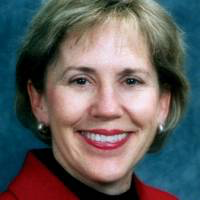
Maureen Donker
First elected to the Midland City Council in 2007, Maureen was elected Mayor by her fellow Council members in 2009. She is the City’s first female mayor, and dedicated to making Midland — her hometown — an outstanding place to work and live. Maureen currently serves on the Board of Trustees for the Michigan Municipal League and facilitate s the Community Advisory Panels for the Dow Chemical Company and Cabot in Midland. She recently worked with students pursuing Master’s degrees in Applied Positive Psychology at Penn to identify approaches to build well – being in the community. In addition to her role as Mayor, Maureen is the Executive Director of the Reece Endeavor, a local non – profit that provides housing for individuals with special needs. She is also a wife and mother, and has been recognized with several awards and honors for the positi ve impact she has had on the Mid – Michigan region.

Marie Forgeard
Marie Forgeard is a psychologist at McLean Hospital, and an Assistant Professor of Liberal Arts at the Berklee College of Music in Boston, MA. Her research focuses on understanding when and how creative thinking and behavior may enhance well – being. To that end, she has investigated the role of motivational styles, personality, psychological flexibilit y, and self – efficacy, among other constructs. Her past studies have examined this topic in a variety of samples, including professional/aspiring artists and scientists, individuals having experienced highly stressful life events, as well as individ uals suf fering from psychopathology. Dr. Forgeard was the 2013 recipient of the Frank X. Barron Award from Division 10 of the American Psychological Association (the Society for the Psychology of Aesthetics, Creativity, and the Arts). Her research has also been funded by grants from the John Templeton Foundation.

Elizabeth Hyde
Elizabeth Hyde is the Research Coordinator for the Imagination Institute and a 2014 graduate of the University of Pennsylvania. Also referred to as the Institute’s “Chief Curiosity Rover,” Elizabeth loves learning about openness to experience and creativity through the lens of positive psychology.

Elizabeth Hyde
Elizabeth Hyde is the Research Coordinator for the Imagination Institute and a 2014 graduate of the University of Pennsylvania. Also referred to as the Institute’s “Chief Curiosity Rover,” Elizabeth loves learning about openness to experience and creativity through the lens of positive psychology.
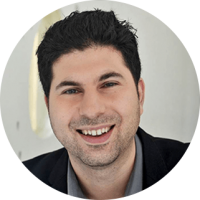
Scott Barry Kaufman
Scott Barry Kaufman is the Scientific Director of the Imagination Institute and a researcher and lecturer in the Positive Psychology Center at the University of Pennsylvania, where he investigates the measurement and development of intelligence, imagination, and creativity. Kaufman has authored/edited seven books, including Wired to Create: Unraveling the Mysteries of the Creative Mind (with Carolyn Gregoire), Ungifted: Intelligence Redefined , The Complexity of Greatness: Beyond Talent or Practice , and The Philosophy o f Creativity (with Elliot Samuel Paul). Kaufman is also co – founder of The Creativity Post, host of The Psychology Podcast, and he writes the blog, Beautiful Minds, for Scientific American. Kaufman completed his doctorate in cognitive psychology from Yale University in 2009 and received his master’s degree in experimental psychology from Cambridge University in 2005, where he was a Gates Cambridge Scholar.
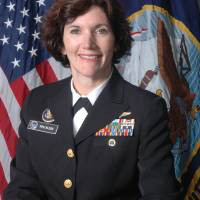
Margaret Klein
Margaret D . “Peg” Klein recently completed her 35 – year career in the US Navy in March 2017. As Rear Admiral Klein, she served as the Secretary of Defense’s Senior Advisor for Military Professionalism from March 2014. Prior to 2014, Klein served in executiv e vice president role as Chief of Staff for the newly – created United States Cyber Command. In 2008 , she served in senior vice president role as director of worldwide operations for the Navy’s Network Warfare Command.
Klein’s leadership experience spans sky to sea, classroom to boardroom, and 10 – person teams to 10,000 – person organizations. She commanded an American military force of five ships, 30 aircraft, and over 3,300 Sailors and Marines. She also served as the Commandant of Midshipmen at the US Naval Academy where she was responsible for the professional development and welfare of 4,400 Navy and Marine Corps officer candidates. A Navy flier, Klein flew in and commanded an aviation squadron. She later led and flew with the entire 1,200 – person force tha t flew these aircraft. She is married to a saint and they have two wonderful adult children.

Derek Lidow
Derek Lidow teaches entrepreneurship, leadership, and design thinking a t Princeton University. Derek has deep experience engaging both academic and entrepreneurial communities in unique ways and at all levels. His successful long – term stints as both a CEO of a large global public semiconductor company ( 1 9 95 – 1 9 99; NYSE: IRF) and as founder of a startup (iSuppli, 1 9 99 – 2 0 10) are a rare business combination. While leading iSuppli the company created novel methodologies and research techniques for capturing and analyzing valuable never – before – available large datasets describing in deta il the technology, media, and telecommunications value chains. After iSuppli was sold Derek was invited by Princeton to be its 2 0 11/ 2 0 12 James Wei Visiting Professor in Entrepreneurship, after which he was asked to be a permanent member of the faculty. Dr. L idow has led many successful long – term large – scale projects, including a Computerworld Smithsonian finalist team. Derek created and teaches two acclaimed classes: Entrepreneurial Leadership and Creativity, Innovation, and Design. In 2014 Wiley published Li dow’s Startup Leadership , an ethnographically inspired study of leadership skills and their relationship to entrepreneurial outcomes. His next book, Building on Bedrock is schedule to be published in January 2018. He has spoken widely, most recently as an invited speaker at SXSW, and he also written many pieces to instruct entrepreneurs, innovators, and leaders for HBR, WSJ, Fortune, Entrepreneur, among other publications.
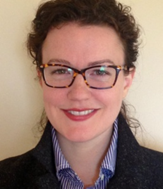
Meredith Myers
Dr. Myers holds a Ph.D. in Organizational Behavior from Case Western Reserve University. She completed her undergraduate studies at the University of Pennsylvania, in the dual-degree Huntsman Program, earning a B.S. in Economics from the Wharton School and a B.A. in International Studies from the College of Arts and Sciences. Meredith Myers is award – winning faculty at the University of Pennsylvania, where, since 2009, she has taught classes ranging from management, leadership, communication and team performance throughout the Wh arton School to fundamentals of positive organizational scholarship in the Master Program in Applied Positive Psychology and the Master Program in Nonprofit Leadership. Additionally, Dr. Myers has run trainings within Wharton’s Executive Education and McNulty Leadership Program, covering topics such as team building, strengths – based leadership, emotions, and facilitation. In recent years Dr. Myers has helped develop and execute training programs to build problem – solving methods and collaboration capacity within mission critical teams at both New York Fire Department and various special operations forces.
Dr. Myers holds a Ph.D. in Organizational Behavior from Case Western Reserve University. She completed her undergraduate studies at the University of P ennsylvania, in the dual – degree Huntsman Program, earning a B.S. in Economics from the Wharton School and a B.A. in International Studies from the College of Arts and Sciences.
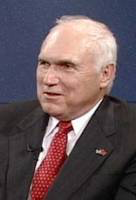
Robert Scales
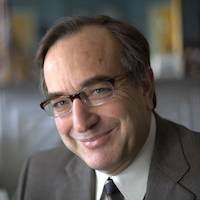
Arthur Schwartz
Arthur Schwartz is Professor of Leadership Studies and Founding Director of the Oskin Leadership Institute at Widener University. He came to Widener from the United States Air Force Academy where he served as that institution’s Senior Scholar. Prior to his Air Force Academy appointment, Arthur served 14 years as a senior executive at the John Templeton Foundation. He is widely known for collaborating with Dr. Martin Seligman at the University of Pennsylvania in catalyzing the field of positive psychology. A rthur’s current research focuses on the antecedents of ethical leadership and the components of the courageous mindset. Most recently, he edited the Jossey – Bass volume Developing Ethical Leaders and his chapter on courage is featured in the new book Develo ping Leaders for Positive Organizing . Arthur proudly serves on the boards of the International Leadership Association (ILA) and Character.org. He received his doctorate from Harvard University where he studied adolescent moral development.
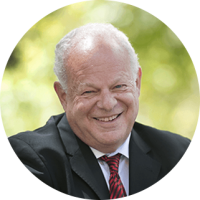
Martin Seligman
Martin Seligman is the Director of the Positive Psychology Center at the University of Pennsylvania and Executive Director of the Imagination Institute. Commonly known as the founder of Positive Psychology, he is a leading authority in the fields of Positive Psychology, resilience, learned helplessness, depression, optimism, and pessimism. He is also a recognized authority on interventions that prevent depression, and build strengths and well-being. He has written more than 250 scholarly publications and 20 books. Dr. Seligman’s books have been translated into more than twenty languages and have been best sellers both in America and abroad. Among his better-known works are Flourish, Authentic Happiness, Learned Optimism, The Optimistic Child, Helplessness, and Abnormal Psychology. His book Character Strengths and Virtues: A Handbook and Classification, was co-authored with Christopher Peterson.
In 1998, Dr. Seligman was elected President of the American Psychological Association. His primary aim as APA President was to join practice and science together so both might flourish – a goal that has dominated his own life as a psychologist. Since 2000, his main mission has been the promotion of the field of Positive Psychology. Dr. Seligman is expanding Positive Psychology to education, health, and neuroscience, and has applied his research to groups like teachers and students, the U.S. Army, athletes, and every-day people. His goal is to make the world happier.
Dr. Seligman was born in Albany, NY and received his B.A. from Princeton University, Summa Cum Laude (Philosophy), 1964; Ph.D. from the University of Pennsylvania (Psychology), 1967; Ph.D., Honoris causa, Uppsala University, Sweden, 1989; Doctor of Humane Letters, Honoris Causa, Massachusetts College of Professional Psychology, 1997; Ph.D., Honoris Causa, Complutense University, Spain, 2003; and Ph.D., Honoris Causa, University of East London, 2006.

Payal Sharma
Payal Sharma is a Visiting Assistant Professor of Management at the Wharton School. She studies positive and negative leadership processes involving topics of stress, workplace aggression and empowering leadership. Her research spans contexts including the U.S. military, corporations, and higher education institutions. Payal received two Bachelor degrees in History and Anthropology from the University of California, San Diego. She also has two Master degrees in organ izational management and higher education administration, from The George Washington University and University of Michigan, Ann Arbor, respectively. She completed her doctorate in organizational behavior at the University of Maryland, College Park in 2011. Prior to entering academia, Payal worked as a human capital specialist at the U.S. Government Printing Office and in external relations at Harvard Business School. She currently serves as the co – faculty advisor, together with Scott Barry Kaufman, of the P enn Program for Flourishing – a new student initiative focused on promoting mind – body health in the undergraduate community.

